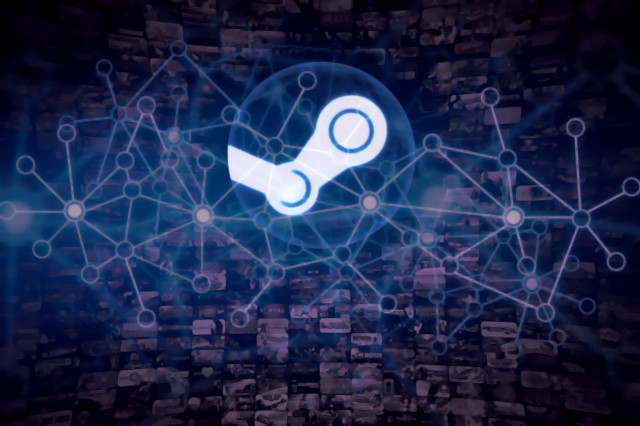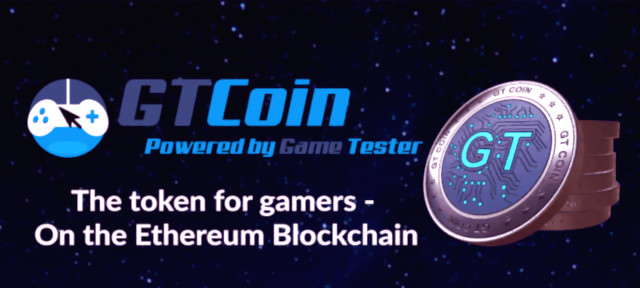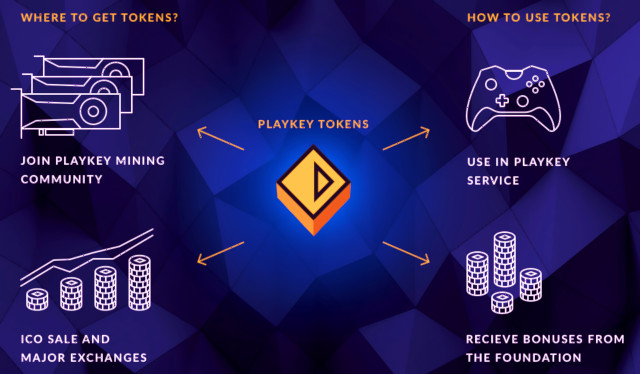2024 was a landmark year for cryptocurrency and blockchain: many coins rose in price and became the subject of media coverage. However, ordinary people still struggle to understand what this technology is and how it affects their lives.
One of the simplest ways to spread blockchain to the masses could be to weave its developments into the gaming world. It is not surprising that many new gaming services have emerged that raise investment through crowdfunding.
It can be assumed that gamers are a great target audience for such blockchain apps as cryptocurrency. Even before their appearance in public space, they used game coins to purchase virtual items. Such money circulated only in their fictional ecosystem. Experienced players have known virtual money much longer than ordinary people.
Many game stores have their own electronic points or coins, which can be used to pay for games. They have digital wallets where you can keep that kind of money. An example is the service Steam.
Table of Contents
New market and first participants
Gamers are well versed in the virtual economy, which often goes beyond the limits of the game. Some objects or pumped game accounts are sold on the forums and estimated in real money. Gamers are the perfect early followers of cryptocurrencies; they even know those that are meant only for gamers.
Bountie
Startup Bountie from Singapore plans to create an online gaming platform, where the players will be rewarded with internal cryptocurrency for the time they spend on the site. It also got the name Bountie. Later, they will be able to exchange the received coins for new games, goods with symbols, tickets, and seats in the gaming tournaments.
On the Bountie’s website, there will be registers of victories and losses, which gamers can use as a portfolio when they try to become part of a strong team in eSports tournaments. The creators of the startup hope that their ideas will allow popularising Bountie coins and distributing them widely in the gaming community. Lex Na, the head of the Bountie project, says:
Virtual currencies can only be used within a single ecosystem. Unlike them, cryptocurrencies can be exchanged for real money or other cryptos on trading platforms.
Game Tester
An Australian company Game Tester is planning to provide small development companies with one common platform, where people can try new games, find errors and discrepancies, and give feedback. For this, players will receive GTCoin tokens, produced by the company itself. They can be used to buy other games, items within games. All earnings and expenses of GTCoin users will be recorded in the blockchain.
Game Tester is in the process of concluding agreements with game publishers and distributors. The founders’ ideas extend far: they will try to build an affiliate system so that you can buy something corporeal for GTCoins, e.g. a gaming laptop. Vendors will return GTCoins to the company by exchanging them for fiat money unless they want to become holders of these tokens, which is also possible. David Dobson, the co-founder of Game Tester, says:
We assume that most companies producing hardware will want to receive payment primarily in a local currency. And we are ready to give them that opportunity.
Enjin
The company Enjin headquartered in Singapore decided to focus on buying and selling game objects. The volume of the market for trading virtual items from games is estimated at $52 billion. The representatives of the company Deutsche Borse, which manages the exchange for trading game objects Swapster since 2015, are talking about it.
Enjin has recently entered into a partnership agreement with the NRG platform, specialising in the organization of eSports events. Enjin will distribute spread and popularise token among the subscribers of NRG, who are interested in gaming parties, tournaments, and ready to buy goods with symbols.
Playkey
Another exciting project is Playkey from Russia, which offers game streaming service to their subscribers. They can play any resource-intensive games, requiring expensive equipment, but the entire load will lie on the company servers. The founders of the company hope to transfer the site to decentralized solutions over time. Miners can earn money in the project, sharing their power with gamers for Playkey tokens.
Major game publishers are also exploring blockchain. For example, last year, famous game studio Crytek announced the launch of the token Crycash, which is used to pay rewards to people playing free Warface. These coins can be used in other games and transactions.
Not just a trend
If we disregard the hype, how can blockchain be useful for the gaming industry? Let’s say game developers are trying to ensure that transactions are inexpensive. Startups such as Enjin, Game Tester, and Bountie promise gamers simpler and cheaper international payment systems.
Dobson explains:
We needed a digital system that we could implement on our platform. We don’t want to depend on Visa, Mastercard or banks to transfer money.
The platform Game Tester attracted about 150,000 of users, and this number increases by 5000 people every day. The company intends to ensure that players can receive small payments of $1–2 instantly. If you add commissions to such payments, the whole line of business will become meaningless.
Using your own coins significantly improves profitability. Traditional forms of payment like PayPal don’t give such an opportunity. The same problem is familiar to players. They often get angry and write negative reviews, when they find out what commissions the sites selling downloadable games take from them. The introduction of blockchain into the gaming environment will allow in-game payments to be made in such a way that developers will receive 85 % of the profits, rather than 70 % as is currently the case.
Safety of developments
Programmers need transparency and security of the blockchain which are not present in centralized systems. Centralized databases are easy to hack or falsify. The game industry, where monetary transactions take place, is an attractive target for hackers.
The Steam platform, where 67 million active users are registered, is often attacked by cybercriminals. Different methods are used: fake member accounts, password theft, and other hacking options.
Blockchain-based game startups allow many existing game developers to take advantage of this innovation, without transferring their platforms into a decentralized environment. For example, the Bountie project allows its partners to connect via API to its capacities. This will shift the multiplayer and tournament components to the blockchain, then no one will need to create independent solutions.
The platform Game Tester provides an opportunity for small companies with a low budget to carry out marketing research in their environment on a ready user base. Every player who gets GTCoin tokens will be marked in the blockchain, where the test results can’t be faked or spied. Developers will understand in which groups of gamers their products are most popular and what to focus on in marketing and advertising without wasting the budget on things that will not bring profit. Besides, they can promote their applications among the subscribers of Game Tester for a share of profits from the paid services.
This will give young, independent studios, which have many talented developers, a head start. Without large budgets, they are currently unable to delight players with their apps.
Battle of tokens
In a world where 1.5 million new tokens are created every month, it has become more difficult to promote new projects. So even in the gaming world, some of them may not take root.
It is unlikely that the market will survive the influx of token sales from every gaming company. Most likely, companies in this industry will have to consolidate their efforts, i.e. unite. There is no room in the gaming industry for all existing kinds of tokens. Most likely, 5–10 gaming tokens will become leaders among them and will be considered benchmarks for the entire market.
The more players will use specific tokens, the higher the price. And the more willing the newcomers will be to choose them. It’s still difficult to predict, which altcoins will become central figures in the market. This is a matter of the near future. In a few years, it will be clear, which cryptocurrencies most gamers will bet on.



